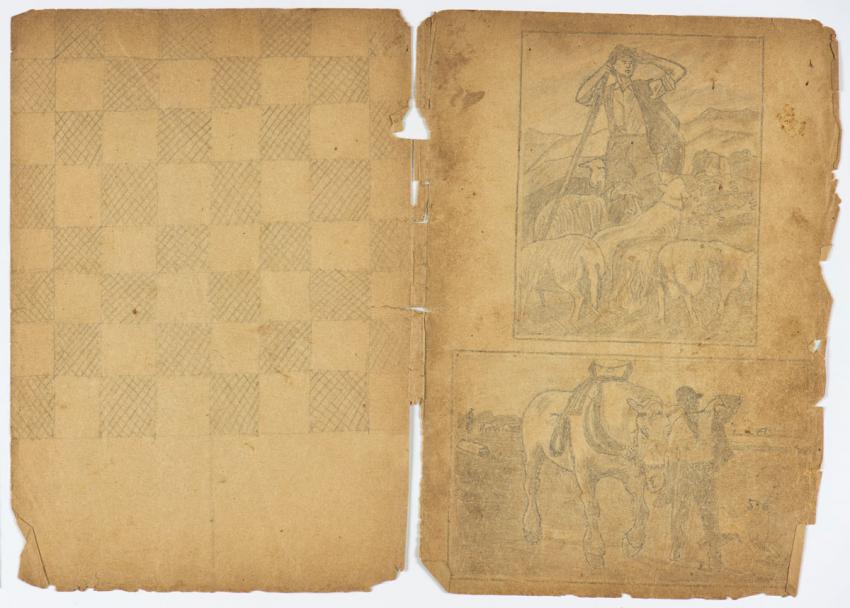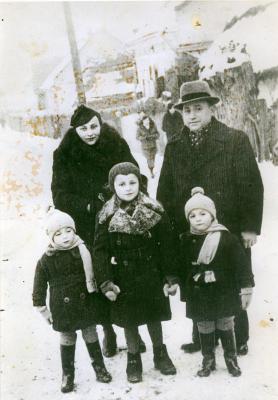After the Lvov area was occupied by the Germans and the violence against the Jews began, Sara Jaget understood that she would have to search for a place to hide with their husband, Leon, and the children, ten-year-old Celia and the six-year-old twins Kuba (Jack) and Lipa (Phillip).
"…My mother… was terrified of the Jews' situation… her instincts were sharp… she said there was no time to lose. Almost from the beginning… she knew we had to look for somewhere, some way to stay alive."
She approached a polish acquaintance, a farmer by the name of Josef Tkacz, and offered to transfer the Jaget home to him after the war if he would agree to hide them.
Josef Tkacz agreed, and in spite of repeated searches conducted by the Gestapo, he continued to hide the Jaget family on his property in Ernsdorf village.
The hiding place, a cramped space where even the twins couldn't stand up, was located under a pigpen. The Tkacz daughters brought them food as well as notebooks and pencils. Kuba's mother encouraged him to draw and suggested that he draw pictures of the furniture they had left behind at home, which he did with surprising accuracy for a child of his age.
Once a week the family lit a candle secretly and opened an air vent. During these short periods Kuba and Lipa sketched and Celia wrote poems. On one occasion, one of Tkacz daughters asked Kuba to help her with an assignment in anatomy, and he crept out of the hiding place at night and copied drawings from an anatomy book for her. Other drawings were copied from newspapers that they received on occasion from the Tkacz family. His sketches of people who lived in the village were accompanied by handwritten comments. One page of the notebook was dedicated to the chessboard. Tiny pieces of bread served as chess pieces. The family was only able to play during the short periods that the candle was lit.
After the area was liberated by the Red Army in April 1944, the Jaget family came out of hiding. After so long in cramped conditions "…we children found it difficult to walk. It took a week or two and it was very painful until we could take a few steps with a stick…" The glare of daylight after so long in the dark also made it hard for Kuba to open his eyes for close to a week.
Yad Vashem Artifacts Collection
Donated by Jack (Kuba) Jaget, Israel








